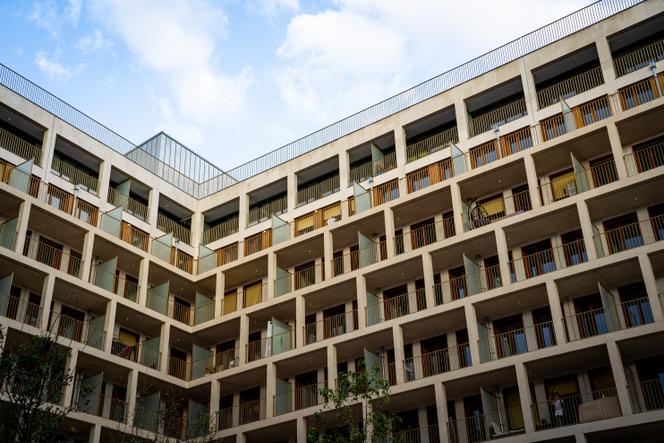


She was everywhere that evening. On September 14, as the Paris municipal team inaugurated the transformation of former Ministry of the Armed Forces offices into public housing in the very chic 7th arrondissement to the sound of a small brass band, Rachida Dati (Les Républicains, LR, center right), the arrondissement's mayor, was in every selfie. There were hugs, broad smiles, a word for everyone and an impromptu photo in the middle of the orchestra. It would have been hard to guess that in 2017, she hadn't backed this unprecedented project to add 254 social housing units on this exceptional site, located a few steps from the Assemblée Nationale.
At the arrondissement council meeting, she lamented that most of these housing units would not be allocated to residents of the 7th because their incomes were too high. Citing the example of a similar operation to create social housing on the remarkable site of the former Laennec hospital, she deplored having to "regularly police it." "When owners bought their homes for €10,000, €15,000 or €20,000 per square meter, and someone living across the street is throwing things over the balcony, or the common areas are not respected, the residents feel cheated at having saved up to find themselves in a situation of permanent conflict," Dati declared.
A few days later, at the December 2017 Paris council, her deputy, Emmanuelle Dauvergne, voted against the project because it included too many "very social" housing units. Worrying about "the ghettoization of entire buildings in the heart of Paris," she said the initiative "would destabilize the neighborhood, our schools and our local businesses."
Six years later, there was a joyful fairground atmosphere in the cobbled courtyard, where the children of the many tenants had gathered to celebrate their move-in. The band's brass instruments contrasted with the calm of Rue Saint-Dominique and its art galleries.
The French Ministry of the Armed Forces had agreed to set aside around 50 housing units for its troops. Among them, 43-year-old Valérie (all those mentioned by their first names wished to remain anonymous), a soldier previously based in Lyon, was delighted to find herself on this chic area, "especially for its security. I'll have peace of mind for my children."
Kuthubkhan, a restaurant owner originally from Sri Lanka; his wife; and their two children were able to leave their one-bedroom apartment in the 10th arrondissement's social housing stock for a three-room apartment in a neighborhood where he expects "the schools to be better." Sandrine (her first name was changed), a victim of domestic violence for several years, was given a three-bedroom apartment quickly after submitting her application. "For me, a new life is starting. I've been free for two weeks now," she said. "The neighborhood is incredible. We're surrounded by monuments. It's a privilege, and I wasn't asking for this much. I'm living a daydream."
You have 75% of this article left to read. The rest is for subscribers only.
